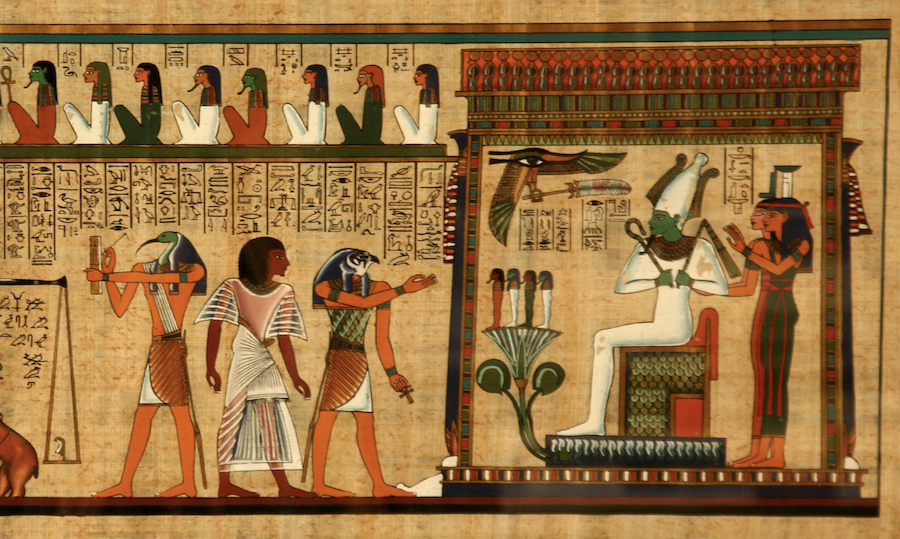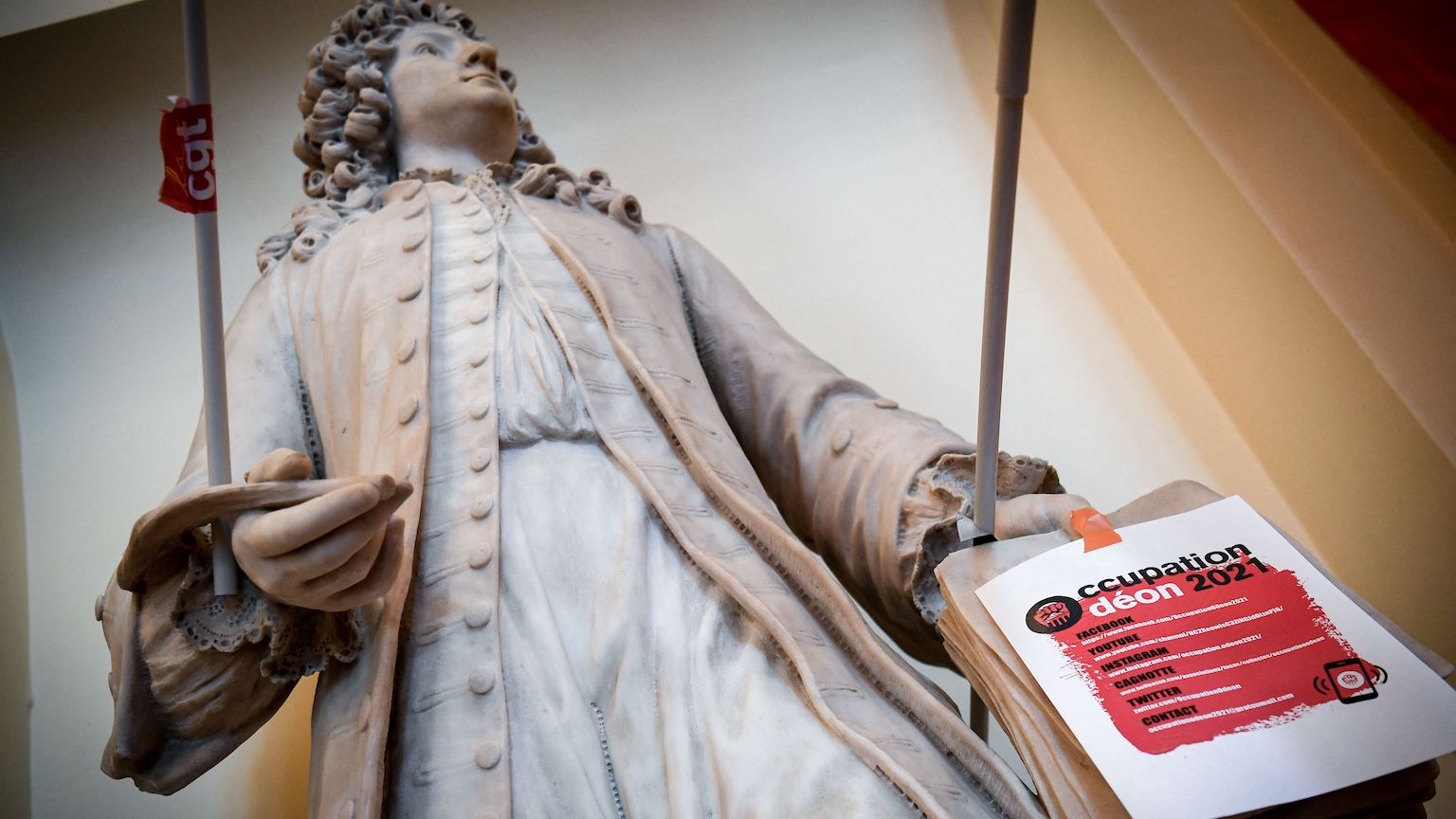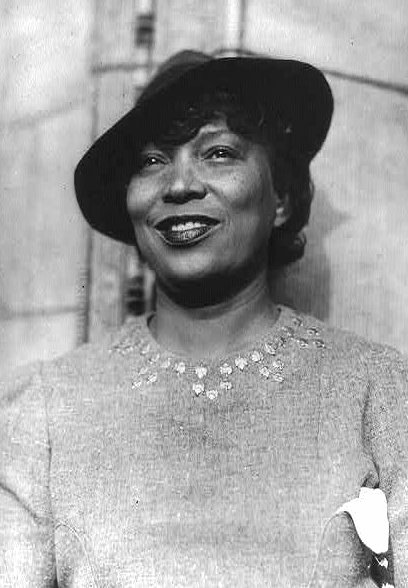The roots of free speech: How did ancient civilizations regulate speech?

- In his new book, Free Speech: A History from Socrates to Social Media, lawyer and human rights advocate Jacob Mchangama traces the evolution of speech laws and norms, using history to explore the causes and consequences of the restriction of speech.
- This book excerpt overviews some of the earliest iterations of speech laws.
- Early instantiations of free speech suffered similar problems as modern versions do, namely that real-world application often falls short of the ideal.
Excerpted from Free Speech: A History from Socrates to Social Media by Jacob Mchangama. Copyright © 2022. Available from Basic Books, an imprint of Hachette Book Group, Inc.
While free speech has deep and ancient roots, for much of recorded history, speaking truth to power was ill-advised and often dangerous. Judging from surviving law codes and writings, the great ancient civilizations protected the power and authority of their rulers from the speech of their subjects, not the other way around. The Hittite laws, put in place in present-day Turkey around 1650–1500 BCE, decreed that “if anyone rejects a judgment of the king, his house will become a heap of ruins.” According to the Hebrew Bible, the punishment for cursing “God and the king” was stoning. These laws reflected the strict hierarchies that ordered large ancient civilizations, many of which were headed by rulers thought to govern by divine right or even—as in Egypt—to be divine themselves. The Instruction of Ptah-Hotep, an Egyptian collection of maxims from around 2350 BCE, advised against speaking to “a greater man than yourself Speak when he invites you and your worth will be pleasing.” The ancient Chinese philosopher Confucius (551–479 BCE) also stressed the importance of obedience toward superiors and rulers, asserting that “it is unheard of for those who have no taste for defying authority to be keen on initiating rebellion.” You would think Confucius’s words were sweet music to the ears of China’s first emperor, Qin Shi Huang, when he ascended the throne some three centuries later. But in 213 BCE, he ordered Confucian literature and historical records predating his own reign to be burned and banned. In the emperor’s own words, as quoted by the ancient historian Sima Qian: “I collected together the writings of all under Heaven and got rid of all which were useless.” His chief minister elaborated that studying the literature and records of the past threw people “into confusion” and led them to “reject the laws and teachings. Disagreement they regard as noble, and they encourage all the lower orders to fabricate slander.” According to Sima Qian, more than 460 scholars were “buried” for violating the prohibition. (Whether they were buried dead or alive is a matter of debate.) This may have been the first organized mass burning of books in recorded history. It would not be the last.
For slaves and women, speech was especially restricted. The Sumerian Code of Ur-Nammu from around 2050 BCE—the world’s oldest surviving law code—decreed that “if a slave woman curses someone acting with the authority of her mistress, they shall scour her mouth with one sila [0.85 liter] of salt.” The Babylonian Code of Hammurabi from 1792 to 1750 BCE allowed slave owners to cut off their slaves’ ears if they uttered the words “you are not my master.” Freeborn women were also punished for overstepping their boundaries. The Middle Assyrian Laws from around 1076 BCE denounced cheeky women who “utter vulgarity or indulge in low talk.” Other speech codes were meant to protect the honor of respectable women. According to Hammurabi’s Code, the penalty for slandering a married woman or a priestess was public flogging and head shaving.
Still, among the harsh injunctions of the ancient world, we can detect nuggets of religious tolerance. After founding the Achaemenid Persian Empire in the sixth century BCE, Cyrus the Great issued a clay cylinder declaring freedom of worship for the diverse subjects of his sprawling empire. According to the Hebrew Bible, he also delivered the Jews from their exile in Babylon and ordered their desecrated Temple in Jerusalem to be rebuilt. The United Nations have called the Cyrus Cylinder “an ancient declaration of human rights.” But even if Cyrus and his successors promoted religious tolerance, they also punished disobedience by burning down temples, cutting off noses and ears, and burying people neck-deep in the desert before leaving them to die in the blistering sun. So much for human rights.
Some three centuries later, the Mauryan emperor Ashoka ordered a declaration of religious tolerance to be inscribed on boulders and pillars erected throughout the Indian subcontinent. Ashoka declared that “all religions should reside everywhere.” Yet even this should not be misconstrued as an endorsement of religious expression. The fine print encouraged “restraint in speech, that is, not praising one’s own religion, or condemning the religion of others.” We also find strains of what has—perhaps too generously—been called “primitive democracy.” Among the Assyrians, Babylonians, Hittites, and Phoenicians there were assemblies, councils, and tribunals that allowed for varying degrees of representativity and political debate. According to Aristotle, the Phoenician city-state of Carthage had a popular assembly, which was consulted whenever the ruling Council of Elders could not reach an agreement, and where “anybody who wishes may speak against the proposal introduced, a right that does not exist under the constitutions of Sparta and Crete.” However, this was still far from the idea and practice of free and equal speech that characterized the Greek city-state in which Aristotle did much of his thinking and writing.
Who wishes to speak? Free speech in ancient Athens
Not until the fifth century BCE does the fog of ancient history reveal a city-state in which the values of democracy and free speech were formalized and articulated as a source of pride and virtue.
Some form of Athenian democracy lasted from around 507 to 322 BCE, with a number of bloody interruptions, but across the various incarnations of this ancient city-state, democratic government and free speech were inextricably linked. Athens was a direct democracy, in which the citizens themselves proposed, debated, and voted for the laws that governed them. In his famous funeral oration honoring those who died in the Peloponnesian War against Sparta, the eminent Athenian statesman Pericles offered a definition of his city’s political system that still serves as a touchstone for democratic governments today: “Our constitution is called a democracy because power is in the hands not of a minority but of the whole people. When it is a question of settling private disputes, everyone is equal before the law.”
Yet by modern standards, the Athenian commitment to equality suffered from serious shortcomings. Women, foreigners, and slaves made up the majority of the city’s population but were expressly excluded from the democratic process. Even so, the egalitarian nature of Athenian democracy was radical for its time.
For the Athenians, the state did not exist as a separate entity from the people. Free speech was thus an inherent part of the Athenian political system and civic culture, rather than an individual human right protecting one against the state, as we tend to understand it in modern liberal democracies. The Athenians did not have a concept of individual “rights” but rather one of the duties, privileges, and prerogatives of the citizen.
In time, Athens became the dominant Greek city-state, and the most powerful of the Greek forces who repelled the invasions of the Persian Empire between 490 and 479 BCE. The ancient Greek historian Herodotus argued that while living under tyranny the Athenians had been an unremarkable people. They only reached great heights when they were granted equality of speech. Pericles emphasized in his oration that free popular discourse was a key source of Athenian strength: “We Athenians . . . take our decisions on policy or submit them to proper discussions: for . . . the worst thing is to rush into action before the consequences have been properly debated.” At least that was the ideal. But as we shall see, reality has a way of mugging ideals.





